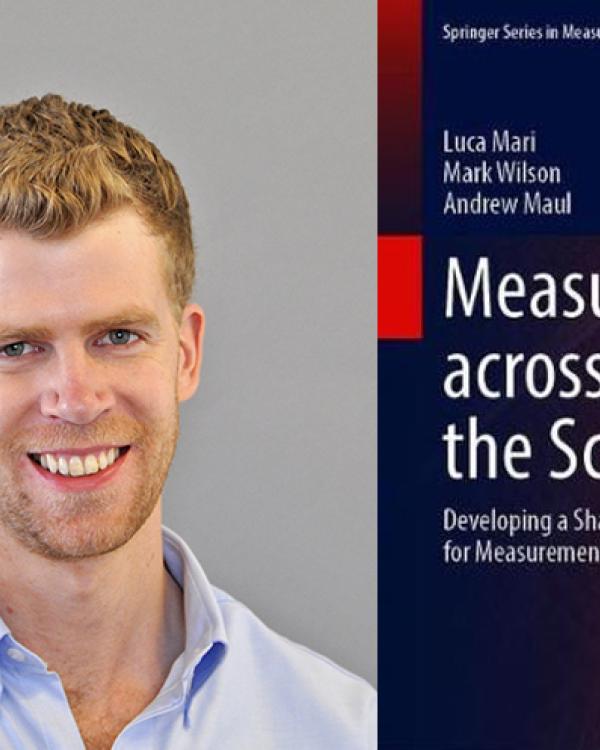
Andrew Maul from UC Santa Barbara’s Department of Education has co-authored Measurement across the Sciences: Developing a Shared Concept System for Measurement (Springer 2021) with Luca Mari, professor of Measurement Science at Università Carlo Cattaneo, and Mark Wilson, professor of Education at the University of California, Berkeley, and also at the University of Melbourne.
This book proposes a conceptual framework for understanding measurement across a broad range of scientific fields and areas of application, such as physics, engineering, education, and psychology. The authors, who themselves span these disciplines, argue that the justification of the public trust attributed to measurement results can in principle apply identically to both physical and psychosocial properties. They further argue that the lack of a common conceptualization of measurement hampers interdisciplinary communication and limits the ability to share knowledge. They advance their views by first surveying the conceptual history of the philosophy of measurement and arguing that classical, operationalist and representational perspectives on measurement each make important contributions but also each have important shortcomings. A synthesis is then offered as the foundation for a new conceptual framework. The authors describe how the framework, which operates as a shared concept system, supports understanding measurement’s work in different domains, using examples in the physical and human sciences. They consider connections and consequences with respect to causality, objectivity, and intersubjectivity, among other topics, and how measurement science concepts and issues are construed across these disciplines and settings. They also address contemporary issues and controversies within measurement in the light of the framework, including operationalism, definitional uncertainty, and the relations between measurement and computation. The book concludes with a justification for the basic claim that measurement is an empirical and informational process that produces explicitly justifiable information.
Andrew Maul is an associate professor in the Department of Education in the Gevirtz School. His work integrates lines of inquiry traditionally associated with statistics, philosophy, psychology, and history, with the aim of improving the quality of methodological practices in the human sciences, and in particular the theory and practice of measurement. Dr. Maul received his Ph.D. in 2008 from the University of California, Berkeley. He regularly teaches courses on the construction and validation of measuring instruments, item response theory, and the philosophy of measurement, as well as introductory and advanced research methods and applied statistics.